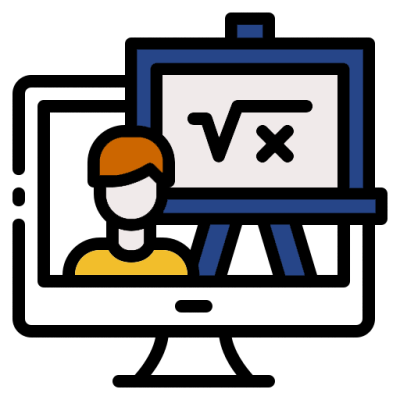Seeking to passionately influence your students? STEM teachers are positioned to make the most profound impact on the next generation by instructing future technology innovators. At Woodmont College, you will master the skills and knowledge, combined with cutting edge instructional methods to be that inspiring educator. Study and learn to apply the most advanced teaching pedagogies to build your dream classroom. Gain the confidence and know how to motivate and educate tomorrow’s leaders.

Implement current pedagogies and methods for teaching science, engineering, and mathematics education.

Analyze student learning to develop rich learning experiences

Use educational technology to enhance instruction and assessment

Research methods and analyze data to develop new practical approaches to education

Design and deliver curricula to maximize student achievement, while aligning with state standards

Develop an ethical approach to teaching that helps build a sensitive and respectful classroom culture

“STEM is where the jobs of tomorrow
will be.” – James Brown, Executive Director, STEM Education Coalition
| Semester Starts | January 21, 2024 |
| Duration | Approximately 2 years |
| Program requirements | 33 credits, including a 6-credit Capstone project |
| Cost |
This is a Professional Development scholarship of $10,175 that will be funded with federal Title funds, for New York City educators, facilitated by the Jewish Education Project. Educators working in Manhattan, Brooklyn, Queens, the Bronx, and Staten Island are eligible for this scholarship. |
| Admissions requirements | Accredited Bachelor’s degree, minimum GPA of 3.0, Statement of Purpose |
| Course Code | Course Name | Credits |
|---|---|---|
| EDU 501 | Foundations of Learning and Implications for Teaching | 3 |
| EDU 520 | Curriculum Theory and Design | 3 |
| EDU 531 | Assessment and Evaluation of Student Achievement | 3 |
| EDU 532 | Methods and Strategies for Effective Instruction | 3 |
| EDU 601 | Teaching to STEM | 3 |
| EDU 611 | Technology in the Classroom | 3 |
| EDU 622 | Developing Innovators and Driving Innovation | 3 |
| EDU 630 | Research methods | 3 |
| EDU 540 | Ethics in Education | 3 |
| EDU 700 | Student Teaching and Capstone Project | 6 |
Q: What degree will I be earning?
A: A Master of Arts (MA) in Education with a concentration in STEM education
Q: What will I be studying?
A: You will be learning the different components of education that will help you create engaging, dynamic, rich learning experiences for your STEM students.
Q: How many courses are included the program?
A: 9 courses, plus a capstone project, totaling 33 credits.
Q: What is involved in the courses?
A: Participate in synchronous online classes, course readings, writing papers, completing assignments, participation in discussion forums, and periodic exams.
Q: What is the capstone project?
A: The capstone is where you get to apply everything you learned in the program by implementing, in a real classroom, a solution to an educational problem you researched.
Q: How do I access the courses and do my work?
A: All courses and coursework will be accessed online via Woodmont College’s student learning platform.
Q: How long will the program take?
A: Each course will be given in an 8 week semester. Total program time is 6 semesters over 2 years.
Q: Is there a specific schedule when classes take place?
A: Yes, courses must be taken in a specific sequence. The academic calendar will be set to 8 week semesters taking into account the Jewish calendar.
Start Date: January 21, 2024
Live classes take place online on Sunday mornings/afternoons.
Q: What is the attendance policy?
A: Each student is allowed one excused absence per course.
• To be counted as “present”, students must have their cameras on for the entirety of each session.
Q: What are the admission requirements?
A: Applicants must submit a legal photo ID, documentation of an undergraduate degree with a minimum of a 3.0 GPA, and a statement of purpose.
Q: Where can I find the application?
A: Apply online here.
Q: Is there any transfer credit option?
A: No, this is a cohort based program and all participants must take all courses together.
Q: Are there advisors available to guide students?
A: Yes, Woodmont College offers individualized academic advisement and guidance throughout the program. Our focus is on the specific needs and circumstances of each student.
Q: Does this degree lead to New York State Teacher Certification?
A: No, this program does not lead to licensure.
Q: How much does it cost?
A: For New York City educators, a special scholarship lowers students’ tuition to $500 per
3-credit course. Tuition for the program will cost $5,500.
• Total program tuition, not including administrative fees & course texts, is $5,500.
There is a Professional Development scholarship of $10,175 that will be funded with
federal Title funds, for New York City educators.
• For educators who do not teach in the 5 boroughs of New York City, tuition is $475 a
credit. Tuition for the program will cost $15,675.
Q: Does Woodmont College help graduates with employment?
A: Yes, Woodmont College provides personal career guidance with concrete support for graduating students. Woodmont College does not guarantee employment.
Q: Sounds great! How do I get started?
A: Email admissions@woodmontcollege.edu
Woodmont College offers top notch accredited 100% online degree options in tandem with Torah values. Study at your own pace and master core concepts and cutting edge skills necessary in today’s competitive job market. Learn with expert instructors and engage with like-minded peers in a cohesive, innovative, milieu that nurtures potential into reality.